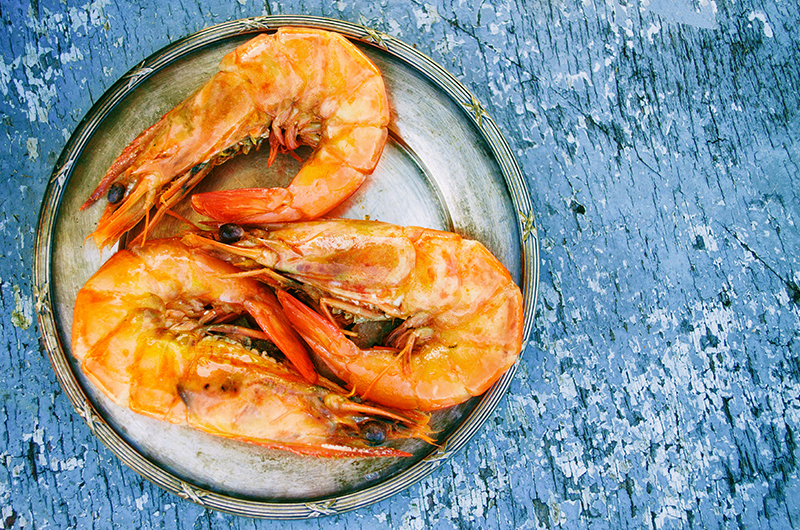The term “seafood” refers to a wide variety of marine organisms, including crustaceans (such as shrimp and crabs), mollusks (such as scallops and clams), and many other types of marine life.
And if you’re wondering, Is seafood healthy? The answer is unequivocally and unequivocally yes. The majority of varieties of seafood make an excellent addition to any diet since they contain a large quantity of vitamins and minerals that are beneficial to your health.
According to Erica Zellner, a health coach at Parsley Health in California, decades of studies back up the idea that consistently ingesting well-sourced seafood of any kind, including fish, is beneficial to one’s health.
She does, however, point out that many people are concerned about the safety of seafood given the condition of pollution in our water, the issue of overfishing, the presence of microplastics (which are minute pieces of plastic that are damaging to aquatic life), and other factors.
According to Keri Gans, RD, a nutritionist and author based in New York, there are some people who avoid seafood because they don’t know how to prepare it properly in the kitchen.
Rest assured, there are a number of ways to safely incorporate seafood into your diet like buying fish sustainably, watching the kind of seafood you eat, preparing it properly, just to name a few.
Seafood Benefits
Consuming more seafood is one of the best ways to improve your nutrition. There is a significant amount of protein in it. The consumption of protein is essential for the development and upkeep of muscle mass.
It is also essential to making a healthy plate since it assists in keeping you full for longer periods of time and contributes to the maintenance of a healthy weight.
Seafood is a fantastic option to consider if you want to increase the variety of protein sources you consume in your diet. Just so you know, the Food and Drug Administration recommends that adults consume at least eight ounces of fish on a weekly basis.

It has a high concentration of fatty acids. According to Gans, the presence of omega-3 fatty acids in seafood should be the primary motivation for people to consume this meal. Because your body is unable to create omega-3s on its own, you must consume foods rich in omega-3s or take omega-3 supplementation in order to acquire enough of these healthy fats.
Some of the greatest sources of omega-3 fatty acids are seafood such as salmon, herring, trout, and sardines. According to Gans, because omega-3 fatty acids are known to reduce inflammation in the body, consuming them can therefore lower your risk of developing cardiovascular disease, dementia, and even some types of cancer.
In addition, according to the Food and Drug Administration (FDA), consuming cooked fish during pregnancy and during breastfeeding helps your child absorb omega-3s, which can enhance their brain development.
Feeling refreshed after an espresso, we walked a short distance to the small but welcoming Banya Bashi Mosque, then descended into the ancient Serdica complex.

The typical American diet is deficient in many of the vitamins and minerals that are included in this food source. According to Zellner, increasing the amount of seafood you consume at each meal will help you improve your consumption of vitamin B12, selenium, iron, and zinc.
According to Gans, seafood is a good source of key nutrients such as calcium and vitamin D, both of which contribute to healthy bone structure and function and are essential for optimal bone health. According to Zellner, consuming seafood may fill in the nutritional gaps that are commonly found, particularly in people whose diets are deficient in nutrients.
Are Any Negative Effects To Eating Seafood?
When it comes to eating seafood, moderation is key, just like it is with any other type of cuisine. Exerting oneself to an unhealthy extreme might, in certain circumstances, result in undesirable side consequences.
You should probably limit how often you eat fried fish. According to Zellner, “I urge individuals to avoid fried seafood, such as beer battered fish tacos or fish and chips, as there is evidence that consuming fried fish is related with an increased risk of lung and prostate cancer.” Fried fish may also have a slightly lower overall nutritional value. However, there is no evidence that eating fried fish on a regular basis is detrimental to one’s health. Just make sure you don’t go too far.
Mercury levels in certain seafood can be rather high. Zellner notes that the levels of mercury found in seafood are determined by a number of different factors, including the age and size of the fish as well as the water in which the fish resided.

Consuming a large quantity of mercury can lead to mercury poisoning, even though a small amount of the element won’t have much of an effect on the body. It is unlikely that you will become ill if you consume less than the eight ounces per week that is advised as the safe upper limit.
Consuming seafood may not be the healthiest choice for the environment in some cases. According to studies, fish are consuming something that is referred to as microplastics because of the large amount of waste plastic that is dumped into the ocean each year.
As a result of the fact that your body is unable to break down microplastics, these substances build up in your organs over time. You are able to steer clear of this problem by being selective about the fish you consume in order to reduce your exposure. Remember this: Zellner adds that the greater the size of the fish, the greater the risk of exposure to microplastics. This is because larger fish are more likely to consume a greater quantity of smaller fish, which all have their own amounts of microplastics.
However, “there is no way to eliminate microplastics from an animal once they are present, and there is no source of wild seafood that can guarantee that their products contain no microplastics at all,” she adds. In the end, “there is no way to eliminate microplastics from an animal once they are present.”








